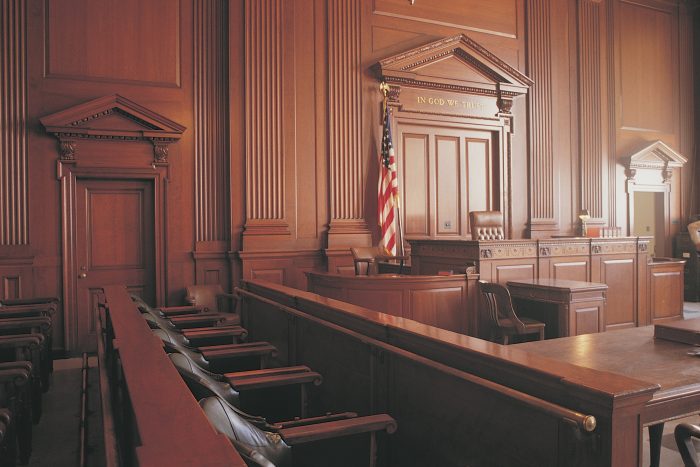D. None of the Above: A soggy hamburger that helped a defendant flee
By Daniel Dunaief

They found me.
After several decades without my civil service responsibilities cropping up, I recently received a summons to appear for jury duty.
The summons brought back memories of a jury I served on years ago. While I was sitting in the courtroom waiting as a court officer chose names of potential jurors for a criminal case, a woman sitting next to me asked my name. When I told her, she said I’d be picked for that jury.
I smirked because there were 200 of us in the room.
Two names later, they called me. I looked back quizzically at the woman, who smiled and walked out of the room with the others who weren’t called.
I served on that jury. It was a buy and bust drug case. I listened carefully as the defense attorney questioned the under cover police officer who tried to buy drugs from the defendant.
When the defense attorney asked how many such operations the policeman had been on, the number was high enough to raise questions about how well he remembered this defendant.
The officer said he made notes, which the defense attorney asked him to read. Going through the notes, he described someone who was about the same build and age as the defendant. He also described a leather jacket with a specific insignia. That was not the defense attorney’s finest moment, as the defendant was wearing that exact same jacket to court. Whoops!
The rest of the trial wasn’t particularly memorable. On closing, the defense attorney suggested that the defendant became addicted to drugs when he served in Vietnam. The judge asked us to focus only on whether the defendant broke the law and not on how he might have gotten addicted to drugs.
After the judge sent us to deliberate, the foreman suggested that we take a vote. Who thought the man had drugs in his possession?
Every hand shot up.
Who thought he intended to sell those drugs?
Everyone but one person agreed.
We asked her about her concerns. She said she had ordered lunch and wanted her hamburger and fries. We told her we’d be happy to pitch in and give her money for a lunch if that was the only reason she wasn’t voting to convict.
Was that, we wondered, paying her for a verdict?
It didn’t matter. She wanted to wait. When lunch came, we ate quietly, waiting for the moment we could take another vote. The holdout said the burger wasn’t good and the fries were soggy.
Gnashing our teeth, we voted again. This time, we all voted to convict. One of the other jurors asked her if she had any other concerns or questions. She shook her head.
When we knocked on the door to let the officer know we were ready, he told us to wait. We spent another three hours in that room.
We returned to the courtroom, where the foreman announced our verdict. The defense attorney polled us all on both counts.
Once we were out in the hallway, I asked the prosecutor why we had to wait so long. She said the judge had held them in the courtroom, figuring that we’d have a verdict before lunch. When he heard we broke for lunch, he told everyone to leave and return in an hour.
Everyone but the defendant came back. The defense attorney spent the next few hours calling his relatives and trying to bring him back.
“What’s going to happen?” I asked.
The police would go to his residence and there would be a warrant for his arrest. He would also enter a database. How hard, I wondered, would the police search for him?
She suggested they would look, but that he was more likely to be caught committing another crime.
“He’s out because someone wanted a soggy burger?” I asked.
She shrugged.
With cell phones and an electronic footprint, the system today may work better than it did then.







